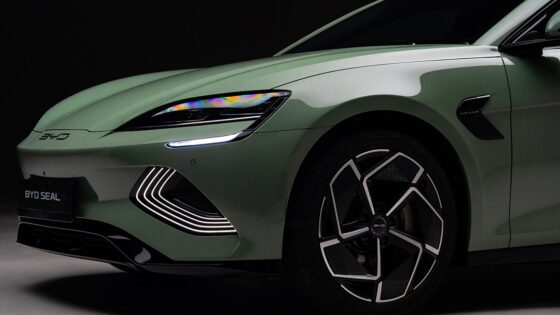For many years, drivers of zero-emission vehicles (ZEVs) in the UK paid absolutely no road tax—a major incentive that spurred the adoption of electric motoring. However, starting April 2025, this exemption will come to an end. If you’re thinking about buying an electric car or already own one, it’s crucial to understand these changes and their impact on your wallet.
Why are zero-emission vehicles losing their tax-free status?
The UK government initially waived Vehicle Excise Duty (VED) on electric cars to encourage cleaner driving and reduce nationwide emissions. With electric car registrations continually on the rise, policymakers now believe it’s time to fold EVs into the standard road tax system. Although some EV drivers may find this shift disappointing, it’s also a sign that electric motoring is moving into the mainstream.
But does this spell the end of EVs as a cost-saving solution? Not necessarily—especially if you’re aware of the new rules and plan accordingly.
Key highlights: The 2025 EV tax overhaul
- End of Zero-Tax: From 1 April 2025, all newly registered and existing zero-emission cars, vans, and motorcycles will be required to pay VED.
- £10 First-Year Rate: EVs registered on or after 1 April 2025 will pay £10 in the first year.
- Standard Rate (£195): After the initial year—or immediately for cars registered from 1 April 2017 to 31 March 2025—EV owners will pay the standard annual rate of £195.
- Older Electric Vehicles:
- Registered between 1 April 2017 and 31 March 2025: Move directly to the £195 standard rate once the change takes effect.
- Registered between 1 March 2001 and 31 March 2017: Will be charged £20 per year.
- Expensive Car Supplement: Electric vehicles over £40,000 face an additional charge, bringing annual costs up to £620 for the first five years after the second payment date.
Are electric cars still worth buying?
Even with the upcoming road tax changes, electric vehicles can still be a smart choice for many drivers. From cheaper charging to smoother, quieter drives, there are numerous reasons why people continue to switch. Here are a few factors that keep EVs appealing despite the new tax rules:
- Lower Fuel Costs: Charging at home—especially on an off-peak tariff—remains significantly cheaper than purchasing petrol or diesel.
- Reduced Maintenance: EVs have fewer moving parts, which often translates into fewer mechanical problems and lower service costs.
- Cleaner Driving Experience: Zero tailpipe emissions improve air quality and lead to quieter journeys, particularly in urban settings.
- Evolving Technology: EV infrastructure is constantly improving, with more charging stations appearing and battery capabilities advancing.
Tips for navigating the new VED rules
Preparing for the 2025 EV tax changes doesn’t have to be daunting. By taking a few proactive steps, you can still enjoy the benefits of electric driving while managing any additional costs that come your way:
- Check the £40,000 Threshold: If you’re close to that figure, the Expensive Car Supplement could significantly increase your annual costs.
- Plan Your Charging Strategy: Consider home chargers, off-peak electricity rates, and reliable public-charging networks to keep running costs low.
- Evaluate Different Models: Battery size, range, and price vary among electric vehicles—factor in the £195 annual tax when choosing.
- Review Purchase Timing: If you’re buying a new electric car now, be aware that from 2025, you’ll shift to the standard rate after the first year.
Conclusion
The elimination of free VED for electric cars might feel like the closing of a chapter, but it doesn’t signal the end of cost-effective and eco-friendly motoring. Electric vehicles still offer compelling advantages, from reduced fuel expenses to minimal maintenance. By preparing for the upcoming tax changes and factoring in an annual £195 tax, you can make an informed decision about whether an EV still meets your budget and lifestyle needs.



